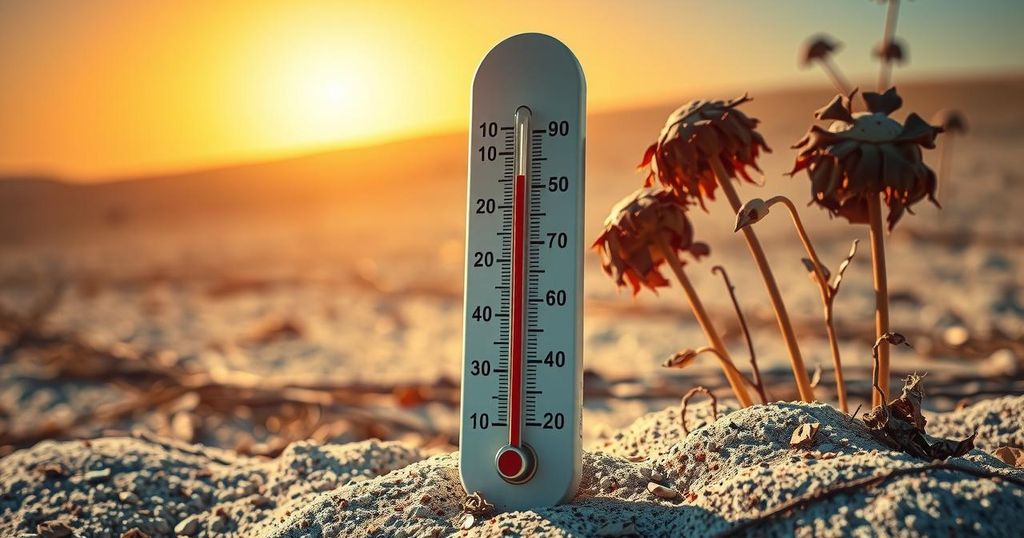Rising Temperatures in Kerala: A Harbinger for a Hottest 2025?
Kerala is witnessing rising temperatures in February, potentially signaling a hotter 2025. The IMD has recorded temperatures above historical averages, raising concerns for agriculture and public health. Experts advocate for strategic planning to address climate change impacts. Immediate actions are necessary as the region prepares for the upcoming summer season.
Kerala, distinct in its climate compared to the rest of India, is currently grappling with rising temperatures, which have sparked concerns about an exceedingly warm 2025. Recent data indicates that February has shown increased mercury levels, prompting climate experts to predict potential heat-related challenges for the state.
Neetha K. Gopal, Head of the Indian Meteorological Department (IMD) in Kerala, suggests that the state is experiencing a gradual temperature increase. Despite February being a transitional month, recorded temperatures have already surpassed historical averages, indicating the possible impact of climate change on regional weather patterns.
As an example, the maximum temperature on February 2 in Thiruvananthapuram reached 35 degrees Celsius, exceeding the normal by two degrees. Gopal noted that without upcoming rain or cloud cover, the state should prepare for more elevated temperatures in the coming days.
The state of Kerala, located between the Arabian Sea and the Western Ghat mountain range, has distinct climatic features that set it apart from the rest of the Indian subcontinent. Its geographic uniqueness results in intertwined seasons, with winter, summer, and monsoon interplaying throughout the year. However, recent evidence suggests that even Kerala is not immune to the extreme effects of climate change, experiencing an alarming increase in temperatures, especially following 2024, which was recorded as the hottest year globally.
In conclusion, rising temperatures in Kerala, notably during February, serve as indicators of a potential record-breaking heat year in 2025. Climate experts urge actions to mitigate the adverse effects of higher temperatures on agriculture, livestock, and public health. As temperature increases continue, coordinated response efforts from government ministries and agencies will be crucial to adapt to these climatic changes.
Original Source: www.onmanorama.com




Post Comment